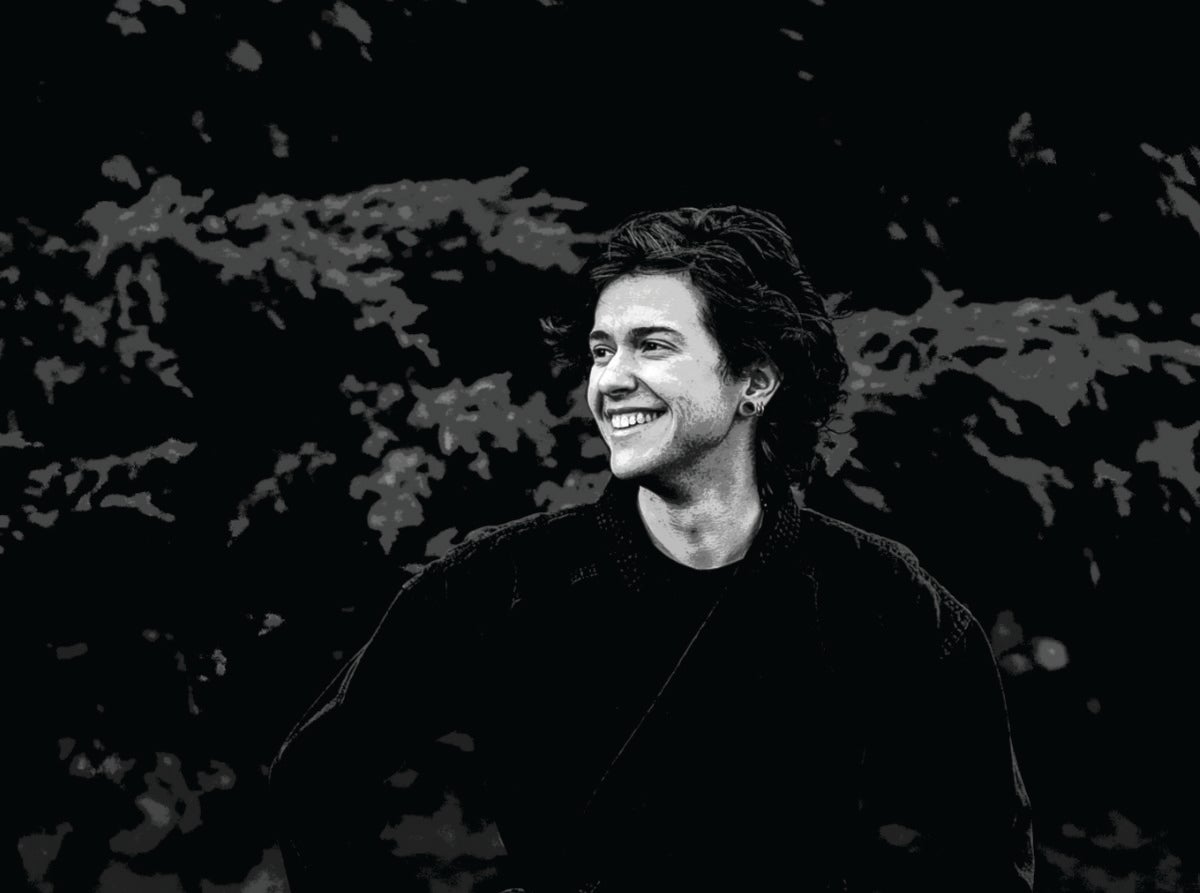Some say poetry is cool again. Others say it’s always been.
In January, 22-year-old Amanda Gorman, the youngest inaugural poet in the nation’s history and its first-ever youth poet laureate, made history reciting her poem, “The Hill We Climb.” Before day’s end, she had achieved superstar status and seized the nation’s attention—a nation whose citizens suddenly seemed to realize just how much they needed poetry.
Even Instagram contributed its verse. Gorman’s popularity there is topped only by poet Rupi Kaur, 28, with 4.1 million followers to Gorman’s 3.8 million. Kaur’s first two poetry collections, 2014’s milk and honey and 2017’s the sun and her flowers, sold a combined 8 million copies. The bound version of Gorman’s “The Hill We Climb” had the best first-week sales of any poetry book ever. Yes, you read that right—ever as in ever in the history of publishing.
All this is no surprise to poet Briana Gagnon ’20, one of the winners of the English Department’s 2020 Nancy Potter Poetry Contest. To her, the suggestion that poetry is past tense is laughable.
“Why would we still read “Beowulf,” John Keats, or even Robert Frost if poetry didn’t matter?” Gagnon says. “Poetry has gotten us through wars, pandemics, and our own personal grievances in a way that nothing else can. Poetry kept me sane during this pandemic.
“A part of my heart and soul,” Gagnon continues, “is left in every poem I’ve ever written. Poetry allows me to share my thoughts and feelings on paper, and that’s one of the coolest things I can think of.”
Briana Gagnon ’20
Associate Professor of English J. Jennifer Jones
Abigail Dodd ’22
Poetry out loud
Last fall, Associate Professor of English J. Jennifer Jones taught Poetry Out Loud, a spoken-word, online poetry course for English majors and non-majors alike, that received high marks from students such as Abigail Dodd ’22, who said the course comforted her as a student struggling to navigate a exceptionally challenging year. “It offered me an anchor to ground myself when things felt overwhelming and absurd.”
Engineering major Kristen Karavitch ’24 discovered a newfound love of poetry in the course. ”I registered for this class thinking that it was just another credit requirement; however, this course has taught me so much.”
First-year student Jordan Kalinsky ’24 called the poetry class as “part of her COVID lemonade,” remarking that it “truly helped me make it through my first semester of college with work that felt meaningful and rewarding.”
Kristen Karavitch ’24
Jordan Kalinsky ’24
Jones contends that in addition to the usual benefits a literature class offers—the development of habits of close reading, discernment, and concision; critical thinking and analysis; and, of course, honing of writing and memorization skills—the course rewards students in other ways both profound and enduring.
Universities have a two-pronged mission: preparing students for a career and nurturing self-realization and growth, she says. “Those two things are always uneasy with each other and, in the contemporary, hyper-consumerist environment in which we currently exist, preparation for a career can come at the expense of self-realization and social interaction. The work I’m trying to do is to open students up to the relationship between career preparation and self-realization, and the way in which one rationalizes them in one’s world, in life.
“A course like this is meant to encourage lifelong self-reflection,” Jones says. “One of the things about memorizing a poem is that it never stops being with you, but its meanings will shift and change and reward across time.”
Nate Vaccaro ’19
Robin Cosgrove ’22
A panacea, a rallying cry, a soul connection
So what is it about poetry that not only endures but prevails over flashier, shallower competition like Twitter or TikTok for our attention? For some readers, like Gagnon, it has been a panacea. For others, like Nate Vaccaro ’19, poetry is a rallying cry.
“I think poetry is an integral part of prompting societal and political change. Expressing yourself and your truth through language and poetry is inherently a political act,” he says. “I believe poetry is going to be especially cool for Gen Z and upcoming generations. It excites me to see poetry emerging as a means to both celebrate and critique popular culture.”
Robin Cosgrove ’22, a kinesiology major, knows the feeling of a soul’s connecting to poetry. He took first place in a recitation competition in Jones’ class for his rendition of William Blake’s “Mad Song.”
“For me, poetry is utterly indispensable. I find wrestling meaning out of words is exhilarating. Of course, you can read a poem and get the surface meaning, but you don’t really engage that way,” Cosgrove says. “But if you dig a little bit deeper, you get a lot more, and that’s the reward for me.

‘Like sculpting clay’

Potter Poetry Prize winner Lila Bovenzi ’22 understands how poetry excites. “You create your own version of language. Other forms of writing are like building with bricks, whereas writing poetry is like sculpting clay—it’s incredibly moldable,” she says. “I also think there is much greater opportunity to use all different forms of figurative language. There are no rules except the ones I make.
“There are no rules except the ones I make.”–Lila Bovenzi ’22
“Poetry will exist as long as humanity survives,” Bovenzi predicts. “And even if we die, isn’t there poetry everywhere in the rest of the universe? If there wasn’t, then where could we have gotten it from? There’s something cyclical about every process in the world, and it is through these circles that patterns, then rhythms, then rhymes, then music, are formed.
“The way life and death fold into each other in an endless loop must be a form of poetry in and of itself,” Bovenzi adds. “So in that way, I think poetry is immortal, even if we aren’t.”
—By Marybeth Reilly-McGreen
